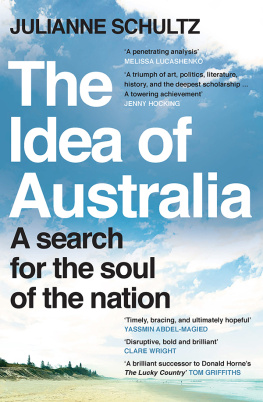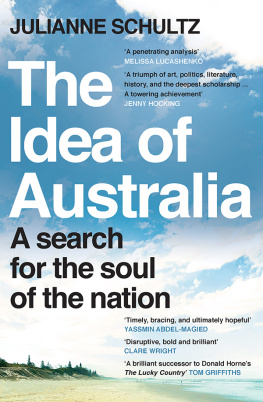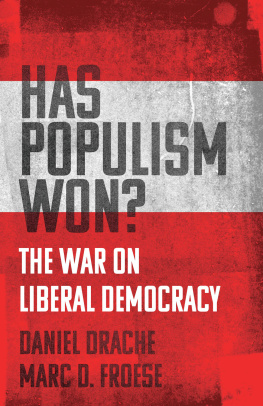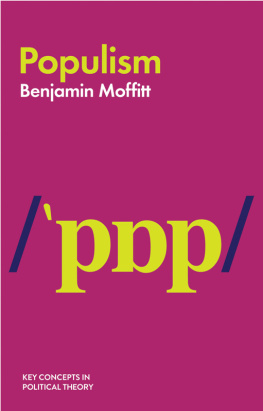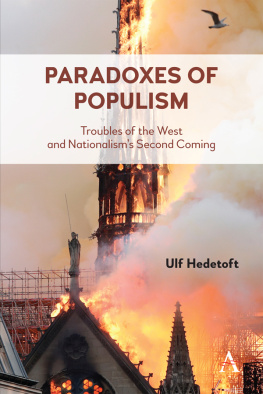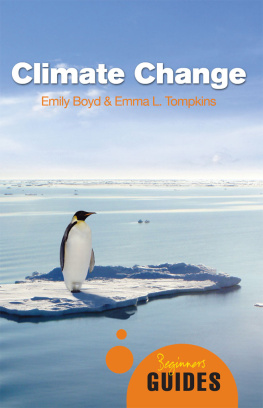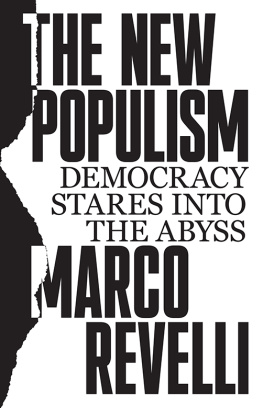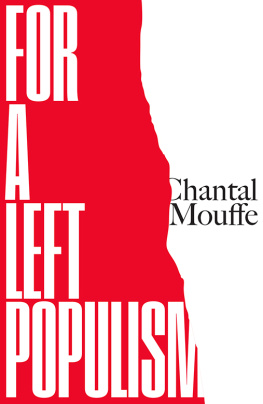Praise for Griffith Review
[A] rich and enlightening and often surprising collection. Peter Pierce, The Australian
This is commentary of a high order. The prose is unfailingly polished; the knowledge and expertise of the writers impressive. Roy Williams, Sydney Morning Herald
For intelligent, well-written quarterly commentaryGriffith Review remains the gold standard. Honest History
Griffith Review is Australias most prestigious literary journal. stuff.co.nz
Essential reading for each and every one of us. Readings
A varied, impressive and international cast of authors. The Australian
Griffith Review is a must-read for anyone with even a passing interest in current affairs, politics, literature and journalism. The timely, engaging writing lavishly justifies the Brisbane-based publications reputation as Australias best example of its genre. The West Australian
Griffith Review enjoys a much-deserved reputation as one of the best literary journals in Australia. Its contribution to conversations and informed debate on a wide range of topical issues has been outstanding. Hon. Ian Walker MP
This quarterly magazine is a reminder of the breadth and talent of Australian writers. Verdict: literary treat. Herald Sun
Griffith Review editor Julianne Schultz is the ultra-marathoner of Australian cultural life. Canberra Times
At a time when long form journalism is under threat and the voices in our public debate are often off-puttingly condescending, hectoring and discordant, Griffith Review is the elegant alternative. Booktopia Buzz
Surveying the textured literary landscape that constitutes a Griffith Review issue can lead to some surprising reappraisals of the way we read texts, culture and ideas. Melbourne Review
SIR SAMUEL GRIFFITH was one of Australias great early achievers. Twice the premier of Queensland, that states chief justice and the author of its criminal code, he was best known for his pivotal role in drafting agreements that led to Federation, and as the new nations first chief justice. He was also an important reformer and legislator, a practical and cautious man of words.
Griffith died in 1920 and is now best remembered in his namesakes: an electorate, a society, a suburb and a university. Ninety-six years after he first proposed establishing a university in Brisbane, Griffith University, the citys second, was created. His commitment to public debate and ideas, his delight in words and art, and his attachment to active citizenship are recognised by the publication that bears his name.
Like Sir Samuel Griffith, Griffith Review is iconoclastic and non-partisan, with a sceptical eye and a pragmatically reforming heart and a commitment to public discussion. Personal, political and unpredictable, it is Australias best conversation.
CONTENTS
GriffithReview 57 2017
Griffith Review is published four times a year by Griffith University in conjunction with Text Publishing. ISSN 1448-2924 ISBN 978-1-922212-38-2
Publisher Martin Betts
Editor Julianne Schultz AM FAHA
Managing Editor John Tague
Assistant Editor Jerath Head
Editorial Assistant Lauren Mitchell
Reader Nina Roxburgh
Fiction Editor Sally Breen
Sales & Subscriptions Manager Angela Smith
Proofreader Sonia Ulliana
Publication Text Publishing
Text Publishing Michael Heyward, Kate Sloggett, Jane Finemore
Typesetting Midland Typesetters
Printing Ligare Book Printers
Distribution Penguin Australia
Contributions by academics can, on request, be refereed by our Editorial Board. Details: griffithreview.com
GRIFFITH REVIEW
South Bank Campus, Griffith University
PO Box 3370, South Brisbane QLD 4101 Australia
Ph +617 3735 3071 Fax +617 3735 3272
TEXT PUBLISHING
Swann House, 22 William St, Melbourne VIC 3000 Australia
Ph +613 8610 4500 Fax +613 9629 8621
SUBSCRIPTIONS
1 year Print edition within Aust $88.00 incl GST
2 year Print edition within Aust $165.00 incl GST
1 year Print edition outside Aust $143.00
2 year Print edition outside Aust $275.00
1 year Digital edition global (ePub, PDF, Kindle) $60.00 incl GST
2 year Digital edition global (ePub, PDF, Kindle) $110.00 incl GST
1 year Premium edition (print + digital) within Aust $120.00 incl GST
2 year Premium edition (print + digital) within Aust $225.00 incl GST
Institutional and bulk rates available on application.
COPYRIGHT
The copyright of all material published in Griffith Review and on its website remains the property of the author, artist or photographer, and is subject to copyright laws. No part of this publication may be reproduced without written permission from the publisher. Opinions published in Griffith Review are not necessarily those of the publisher, editor, Griffith University or Text Publishing.
FEEDBACK AND COMMENT griffithreview.com
INTRODUCTION
Grooming the globe
Denying fairness, complexity, humanity
Julianne Schultz
I KNOW IT makes you sick to think of that word fairness, Arthur C Brooks, president of the American Enterprise Institute, told the Conservative Political Action Conference in March 2013. But, he went on to tell the heads of Washingtons most influential right-wing think-tanks still shocked by Obamas continuing appeal, Americans universally believe its right to help the vulnerable. If you want to win, he continued, start fighting for people! Lead with vulnerable people. Lead with fairnesstelling stories matters. By telling stories we can soften people.
New Yorker investigative journalist Jane Mayer paraphrased Brooks message in her magisterial book Dark Money (Scribe, 2017): if the 1 per cent wanted to win control of America, they needed to rebrand themselves as champions of the other 99 per cent. Donald Trump may not have been the 1 per cents preferred candidate his ego, ignorance and lack of discipline were well known but he embodied the message. In the words of the Hannah Arendt scholar Roger Berkowitz, the US President appeals to the need for constant distraction, destruction and entertainment.
It is tempting to think that this appeal, and its authoritarian consequences, is innate a default setting of human societies across history and geography. But the swift counter-reaction to Trump at home, and subsequent elections in Europe, challenge this presumption. Nonetheless, there is a long list of authoritarian leaders across the globe ready to deride the rule of law, circumvent checks and balances, undermine institutions, cultivate ignorance and encourage fear.
As Mayer painstakingly demonstrates, making self-interest seem normal and a commitment to fairness an elite aberration has been a long-term project. Upending this commitment expressed most simply in President Roosevelts four freedoms (of speech and religion, from want and fear) that were ultimately embodied in national and global institutions created at the end of World War II is not something that has happened by chance. It has been the result of a deliberate, well-funded, long-term strategy that has touched us all, whether we are aware of it or not. As Mayer writes, During the 1970s, a handful of the nations wealthiest corporate captains felt overtaxed and over-regulated and decided to fight back. Disenchanted with the direction of modern America, they launched an ambitious, privately financed war of ideas to radically change the country. They didnt want to merely win elections; they wanted to change how Americans thought.



